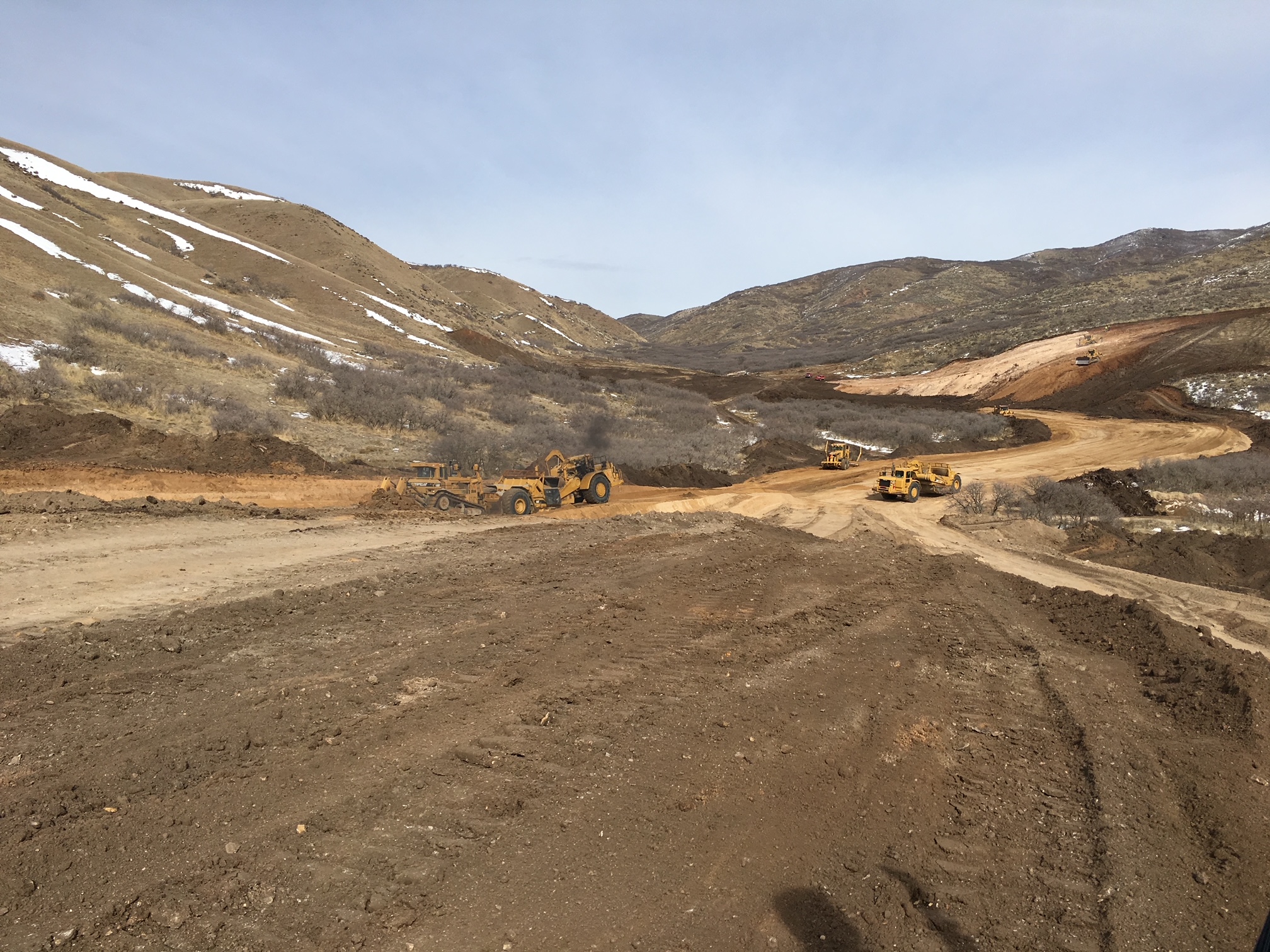
The Ups And Downs of Residential Earthworks
Grading and Excavation for Homes: Finding the Balance
As a successful professional engineering consulting firm, FOCUS has a well-rounded knowledge of all facets of engineering and its accompanying challenges. One such aspect of every engineering project is earthworks, which is the process of evaluating a project’s current topography and soil types then designing the project to best align with the site and meeting our client’s desired product and end use.
To achieve an optimal site design, the FOCUS engineering team sets buildings and roads to elevations that provide the most balanced site possible. A balanced site creates an equity of imported and exported earth: excavated dirt is repurposed in the grading of other areas on site. Soil types and natural terrain are major factors in how our engineers can balance a site. Each site is unique and requires proper evaluation and design with earthworks management in mind; perfect site balance cannot be achieved on every project.
Precise Grading Plans: Residential Projects
To help clients achieve a well-designed site, FOCUS often provides a Precise Grading plan—particularly for multi-family and single-family homes. FOCUS’ Precise Grading plan sets the top of each individual foundation then grades each lot to work with adjacent lots. The plan details the amount of dirt to be displaced on each lot during basement excavation, as well as how each lot will manage its storm water and drainage. Once these details are determined and the Precise Grading plan is finalized, our engineers “back out” these details to formulate the Development Grading plan. This plan accounts for the basement excavation and shows how the lot grading will be left when the mass grading and road construction is completed. When a home is constructed, the soils excavated for the basement will be backfilled and spoiled within the lot’s boundary with minimal support required.
The information on the Precise Grading and Development Grading plans are used to forecast more accurate project budgets and timelines, better manage dirt during mass grading operations and road construction, and allow large amounts of dirt to be moved by large, heavy equipment at a fraction of the cost that would be incurred by smaller equipment.
Earthworks Challenges and Considerations
Just as each project site is unique, the same is true for each FOCUS client. “Our clients do not all have the same objective when it comes to earthworks,” noted Site Civil Department Manager Travis Benson. “FOCUS understands that knowing our clients’ needs and desires is critical for earthworks to be successful.”
Every client is understandably concerned about cost. FOCUS knows that design is generally the smallest investment on most projects, and it is only once construction commences that major expenses start to incur. If earthworks are not carefully considered and applied to the design—with client-centered focus—costs incurred during construction can become extremely significant.
Challenges with earthworks and their associated costs include poor soils, steep or flat terrain, high groundwater, adjacent properties and improvements, existing city ordinances, or existing master development agreements that limit import or export to and from a site and/or limit the allowable areas of disturbance. Another challenge for earthworks with residential developments is that builders do not initially know which house will be built on any given lot. As a result, the amount of soil displaced by a basement will vary depending on which house is selected by the homeowner—something that happens long after FOCUS’ design work has been completed. To combat this unknown factor, we estimate an average basement size and earthworks management based on projected home sales.
FOCUS has spent years developing methods to provide the most accurate and timely project earthworks information to our clients. “By working closely with clients to consider earthworks early in the design process and adapting it to their specific needs, we are able to help our clients understand the cost implications of poorly-designed projects,” remarked Benson.
Earthworks Benefits
FOCUS recognizes that earthworks truly is a science and that not all clients realize the importance of investing in earthworks during design to prevent higher construction costs. Benson shared, “Most clients understand the cost to move dirt, so FOCUS strives to show an in-depth analysis of earthworks. We then apply a solid design to save the client far more during construction than they will ever spend during the design phase.”
Our goal during design is to help clients identify earthworks on their project site before their contractor ever moves a yard of dirt. “Knowing early in the process that a site will not balance is key to managing the costs of construction. This empowers clients to keep a close eye on contractor costs and have confidence that the investment of including earthworks early in the design saves significant money during construction,” said Benson. These savings are realized in less dirt being moved, reducing or eliminating the cost to purchase dirt and/or haul material to a site, or paying to have dirt removed from a site.
Earthworks: In FOCUS
In our ongoing goal to constantly improve as an engineering and surveying firm and deliver the highest quality services, FOCUS will continue to help clients navigate the complexities of earthworks management and associated costs savings on their project sites.

